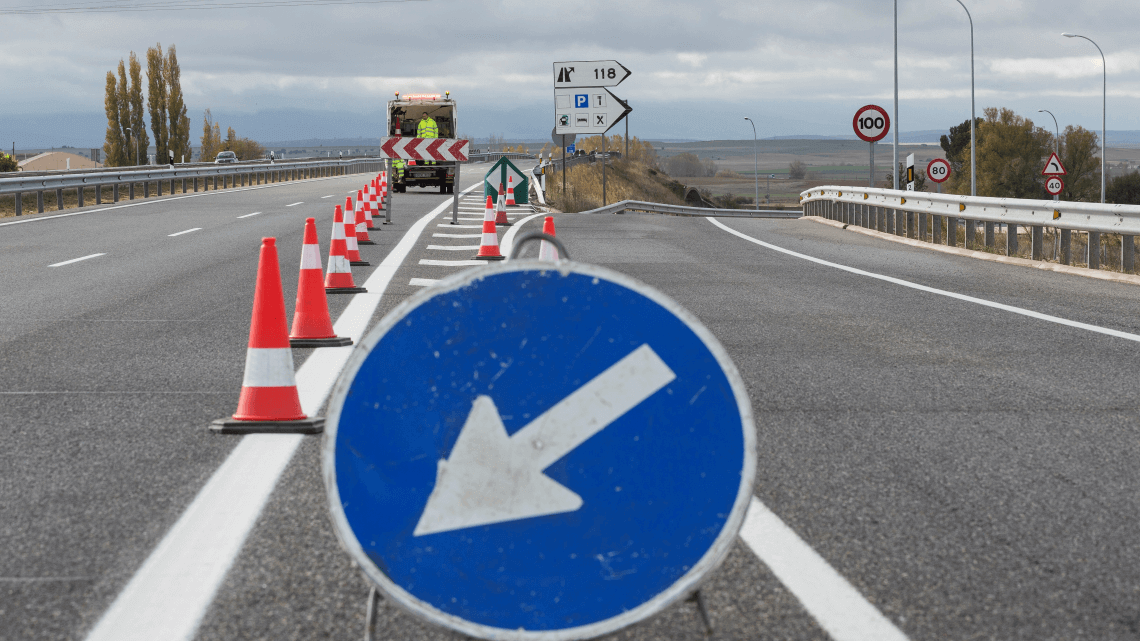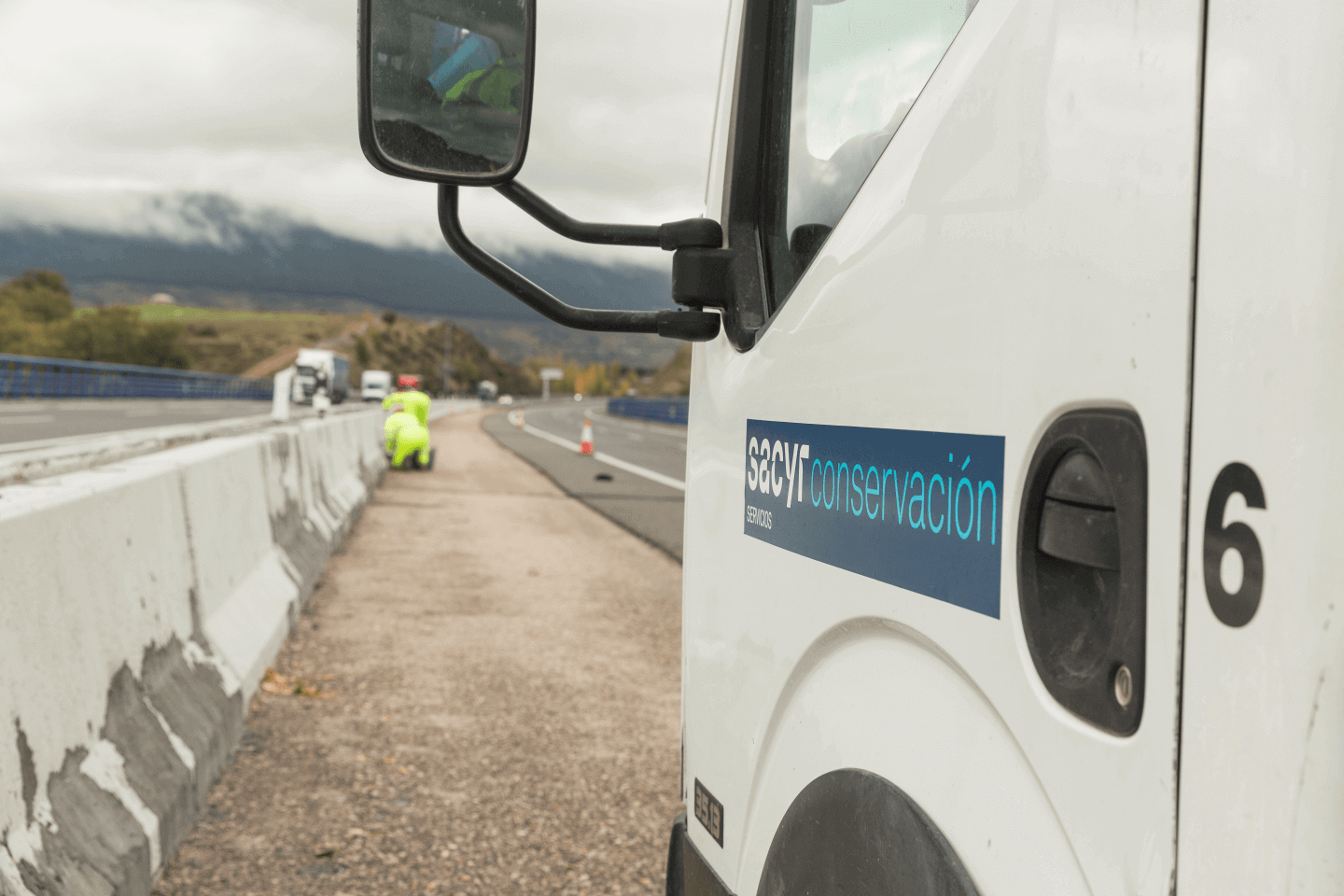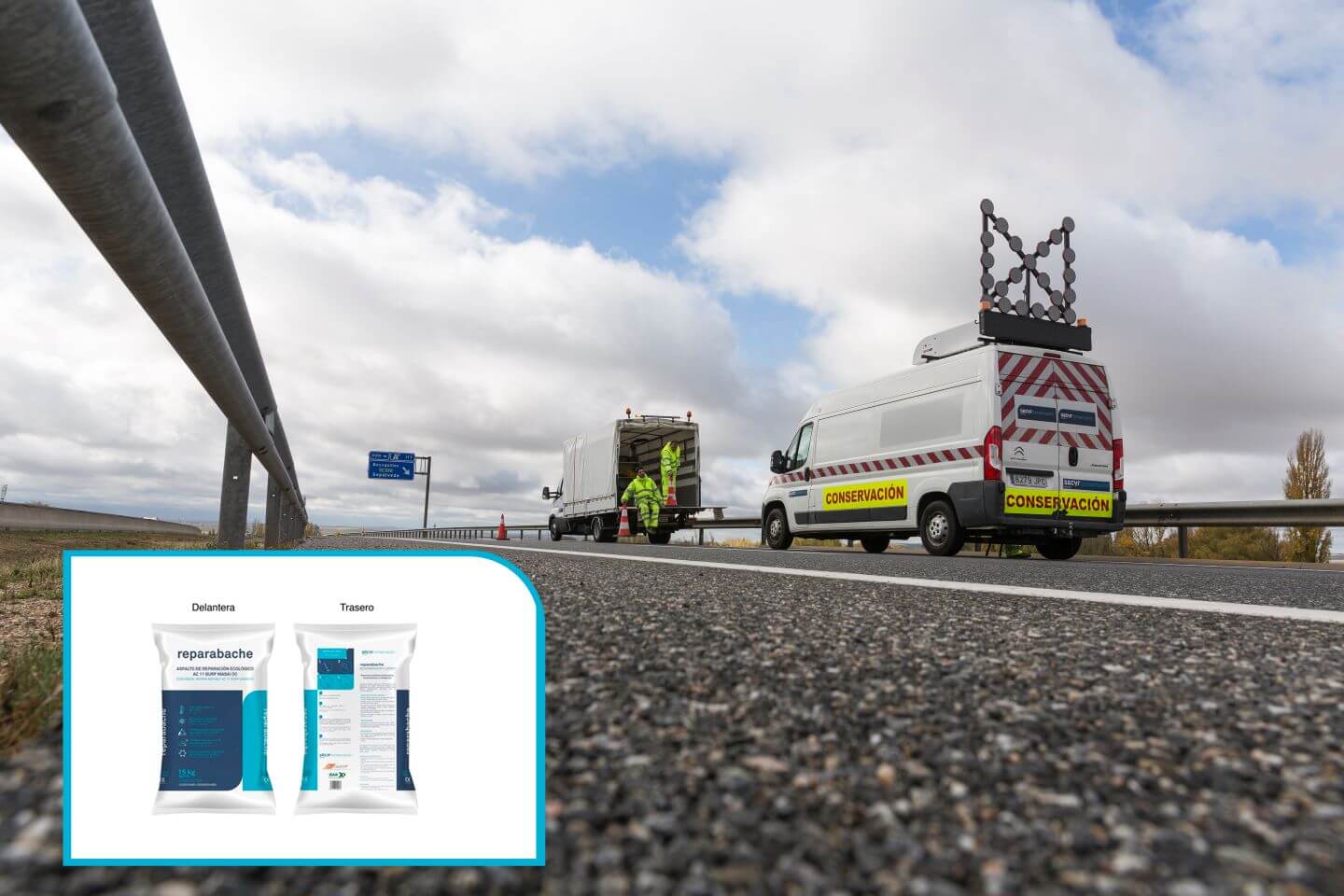MASAI mixtures share the same characteristics of conventional aggregate, but the application is cold, fast, easy, and clean, which allows to open the road to traffic immediately after application.
Some new features are the incorporation of rubber powder. Normally, two end-of-life tires are offset per ton.
“This product, ‘CE’ marked and 100% eco-friendly, is completely reusable, as we can store production leftovers. The manufacturing process incorporates graphene, which makes it twice as durable and improves its elastic recovery characteristics. Demand for this product is increasingly higher because it can be used in locations with adverse weather conditions”, explains Jorge Zarzuelo, Head of Innovation, Procurement and Machinery Fleet at Sacyr Maintenance. In addition, it also contributes to reducing noise pollution.
“This is an innovative product in the market, and it has nothing to do with conventional cold asphalt. It also reduces construction work costs”, asserts Zarzuelo.
Some of the more common uses for this product are road priming on the pavement base, road priming on waterproofing systems, as a crack sealant and to produce slurry seal.
“MASAI mixtures are elaborated from environmental waste, from roads that are deteriorated by at least 20% of their weight, or sub-products from other industries by at least 5% of their weight, and recycled polymers. Furthermore, these materials incorporate sensors and other devices which can receive/send information to offer different characteristics to improve road safety, assess the roadbed’s wear, traffic capacity, weight limit, etc.”, Zarzuelo explains.

Much needed road maintenance
Javier Herrero, Director-General of Roads of the Ministry for Transport, Mobility and Urban Agenda, affirmed in 2020 that the economic situation that year had brought a reduction of more than 50% in the allocated budget for the general maintenance of roads.
According to the report 'Necesidades de inversión en conservación de carreteras en España 2019-20' (Investment needs in road conservation in Spain 2019-20), of the AEC (Asociación Española de la Carretera, Spanish Road Association), both the national and autonomic road networks show “a worsening” of their “deficient” state of maintenance, and one in every 10 kilometers shows a “very deficient” state, which brings even greater wear on more than half of the pavement layout.
Among the more frequent types of damage this report points out sinking, presence of wheel tracks, deep cracking, disintegration, deformation, and erratic cracks.
The AEC report includes that a keeping the road network in good state of conservation could involve a 9% reduction of CO2 emissions of light vehicles, and 6% in the case of heavy vehicles.
This study calculates that this lack of maintenance is responsible for at least an additional 25 million tons of CO2 having been released to the atmosphere in the past 10 years. This lack of maintenance was aggravated during the COVID-19 pandemic lockdowns due to the stoppage of maintenance works, despite the drastic reduction in car trips.

The more sustainable technologies being carried out in Spain require extending the life of roads, and on the other hand, reducing all atmosphere pollutants, both green house gas emissions and pollutant particles.
To do so, we need to lower the conventional fabrication temperature of asphalt mixtures and also improve the mechanical characteristics of roads and incorporate new designs that adapt to new conservation solutions too. All of this is achieved with MASAI asphalt mixtures.
